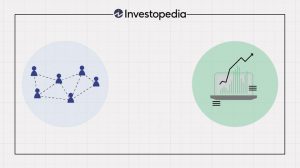 Network Effects and Examples
Network Effects and Examples
I was instantly drawn to this question because finding a network effect, in the VC world, is classically regarded as the first step to finding a “unicorn,” or billion-dollar company. Network effects, speaking simply, is the effect of growing user bases generating value specifically because they are growing. Facebook is probably the most ubiquitous example of this effect. Facebook only became valuable because the number of members kept growing. New users were encouraged to join to access their friends on the website, but were no one on Facebook, no one would want to join. Therefore, as more friends joined, the value proposition was even stronger, because users could interact with growing numbers of people. This effect allowed Facebook to blossom into a social media giant. Many businesses seek to generate a network effect, but it is easiest to achieve in the software and tech space, in my opinion. For example, there are few opportunities for network effects in the consumer space. If I buy Pepsi, for example, your decision to buy Pepsi is not influenced. I have not generated more value to you from my purchase. Network effects allow exponential growth for a business, but, as illustrated above, are difficult to come by. Network effects generate value not only in terms of revenue and profit, but a stronger value proposition, which is the core of the exponential growth that they enable.
I loved your examples, Julia! I’m glad to see that you were drawn to this question, and that your post shows it!
Hi Julia,
I truly did gain a lot of insight from your post! I think you made some awesome connections that really do highlight what a network effect is. I love your Facebook example. It really is true that Facebook would be nothing without the number of users that are on it. Considering it is such a huge social media platform, it really is strange to think that it so easily could have been nothing at all. I think that shows just how powerful network effects really are. Awesome job!